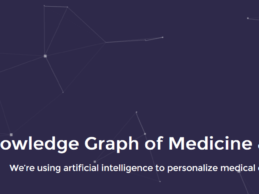The U.S. Department of Veterans Affairs (VA) has signed a five-year deal with San Francisco, CA-based Flow Health to build a medical knowledge graph with deep learning to inform medical decision-making and train artificial intelligence (AI) to personalize care plans. Flow Health is building the world’s largest knowledge graph of medicine and genomics from over 30 petabytes of longitudinal clinical data drawn from VA records on 22 million veterans spanning over 20 years. All patient information
Read More
Flow Health
Can Artificial Intelligence Reduce “Notification Overload” for Clinicians?
One of the unintended consequences of moving healthcare onto EHRs has been an increase in time spent reviewing a much-increased volume of messages for the clinician. EHRs were supposed to simplify and streamline the in-office and in-hospital workflows, but what has happened instead has been “notification overload.” A recent article published in JAMA showed that, for primary care physicians, managing EHR notifications costs about an extra hour of work per day. In a fee-for-service environment,
Read More
Can AI Reduce The Prior Authorization Burden in Healthcare?
One of the most frustrating elements of the current healthcare environment is the administrative burden of prior authorizations for medications and procedures. It is a frustration for providers, for patients, and for payers. Is there any way to solve this dilemma?For physicians, an estimated 20 hours per week is spent in prior authorization activities, costing an average of $83,000 in excess annual overhead per physician. Is there an actual benefit for this effort? Most physicians say that
Read More
Can Artificial Intelligence Improve Patient Engagement?
A recent article in The Commonwealth Fund blog, “Envisioning a Digital Health Advisor,” raises the question of being able to use smartphone apps to get real-time, accurate and personalized guidance for health concerns. While one can envision the convenience, affordability and peace of mind that would result from their use, such services face a number of hurdles before they become reality. As a result, the “digital revolution” has not yet greatly affected most people’s interactions with the
Read More


